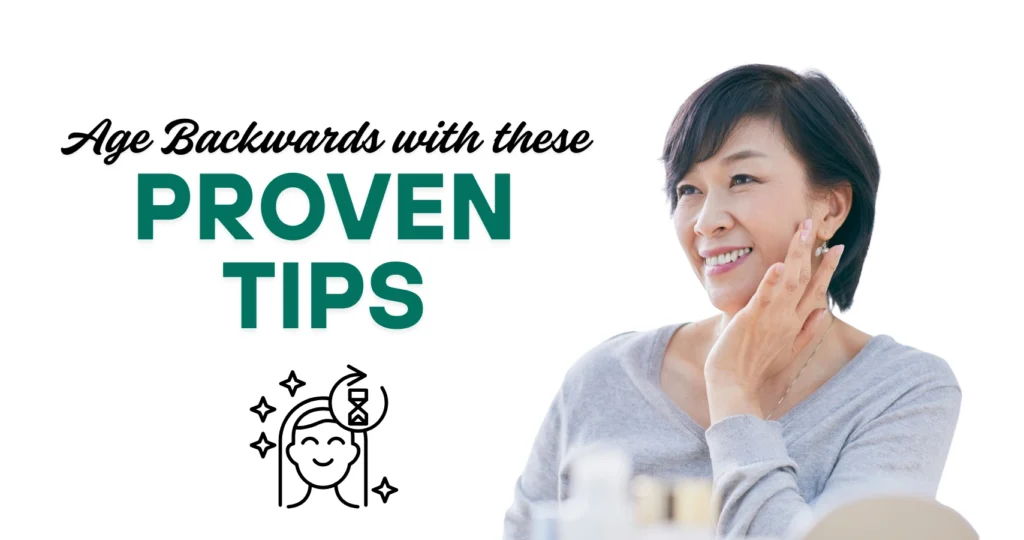Why Most Anti-Aging Creams Fail (And What to Do Instead)
If you’ve been disappointed by anti-aging products that promise miracles and fail to deliver, you’re not alone. The secret to healthier, more youthful-looking skin might be simpler than you think. Learn why most creams don’t work and what actually makes a difference in your skincare routine. No expensive treatments, just simple, effective changes you can make today.

As we go through life, our skin naturally ages. Fine lines start to appear, and before we know it, wrinkles follow. While this is a normal part of life, there’s a way to slow down the aging process and even reverse some of its effects, while you sleep!
But what’s the catch?
You may not notice it right away, but over time, those fine lines deepen, the skin sags, and your reflection starts to feel unfamiliar.
Wrinkles Are A Natural Part of Aging

Wrinkles are a by-product of the aging process. As we age, our skin cells divide more slowly, and the dermis, the middle layer of our skin, begins to thin. This layer is responsible for giving your skin structure, and it’s also where elastin and collagen fibers live offering support and elasticity. As the dermis weakens, the skin loses its firmness, and wrinkles start to form.
It’s important to remember that while wrinkles are a natural part of growing older, there are things we can do to slow down the process and even reverse some of the visible effects.
Common Factors That Accelerate Wrinkle Formation
Several factors can cause wrinkles or make them appear prematurely. These include:
- Age: As you get older, your skin naturally loses collagen and elasticity, leading to the appearance of wrinkles and sagging skin.
- Sun Exposure: UV rays break down the collagen and elastin in your skin, speeding up the aging process.
- Smoking and Pollution: These can damage your skin and cause premature wrinkles.
- Facial Expressions: Repeated facial expressions like squinting, smiling, and frowning can eventually leave lasting grooves in the skin.
- Genetics: Your genes can also determine how your skin ages.
While we can’t control everything, there are steps you can take to slow down the formation of wrinkles and keep your skin looking youthful.
Get Insider Tips
Watch the Video Now!
Simple Tips to Prevent and Manage Wrinkles

- Protect Your Skin from UV Radiation: Sun exposure is one of the leading causes of premature aging. Always wear sunscreen with an SPF of 30 or higher, even on cloudy days. Avoid prolonged sun exposure and wear protective clothing, like wide-brimmed hats and sunglasses.
- Moisturize Regularly: Dry skin can make wrinkles appear more prominent. Make moisturizing a part of your daily routine. Use products with ingredients like retinol, niacinamide, and vitamin C to help reduce the appearance of fine lines.
- Quit Smoking: Smoking contributes to the breakdown of collagen and elastin. Quitting can help improve your skin’s elasticity over time.
- Wash Your Face and Remove Makeup: Never sleep with makeup on. Makeup can clog pores and prevent collagen production. Cleanse your face before bed to ensure your skin can regenerate and repair itself overnight.
- Maintain a Healthy Diet: A diet rich in fruits, vegetables, and antioxidants can help protect your skin from damage and improve its appearance.
Anti-Wrinkle vs. Anti-Aging?
Anti-Wrinkle products are specifically designed to target the visible signs of wrinkles and fine lines. These are often formulated with ingredients like retinol, peptides, and hyaluronic acid, which help smooth the appearance of skin by boosting collagen production and hydration. The main goal is to reduce the appearance of existing wrinkles and prevent new ones from forming.
Anti-Aging is a broader term that addresses the overall aging process, including skin sagging, loss of elasticity, and dullness. These products typically focus on improving skin texture, tone, and vitality. Ingredients like antioxidants, vitamin C, and SPF are commonly used to prevent and slow down the effects of aging on a deeper level.
FAQs
Can Makeup Cause Wrinkles?
If you don’t properly remove your makeup at night, it can clog your pores and hinder your skin’s ability to produce collagen. While occasionally forgetting to remove your makeup may not cause lasting damage, making it a habit can lead to premature aging.
Does Caffeine Contribute to Wrinkles?
Caffeine has some antioxidant benefits, which can protect your skin in the short term. However, it doesn’t provide a long-term solution for wrinkles. While caffeine-based skincare products might give you a temporary glow, they don’t fix the underlying issues that cause wrinkles over time.
When Do Wrinkles Appear?
Wrinkles can start appearing as early as age 25, although they tend to become more noticeable after the age of 40. The most common age group seeking wrinkle treatments is between 40-55, with wrinkles becoming more prominent after age 65.
A Simple Path To Healthier Skin
Achieving smoother, more youthful-looking skin doesn’t have to involve expensive products or unrealistic promises. By adopting a simple, consistent skincare routine and understanding the basics of skin health, you can support your skin’s natural resilience and appearance. No one product can work miracles, but small changes over time can make a noticeable difference.
